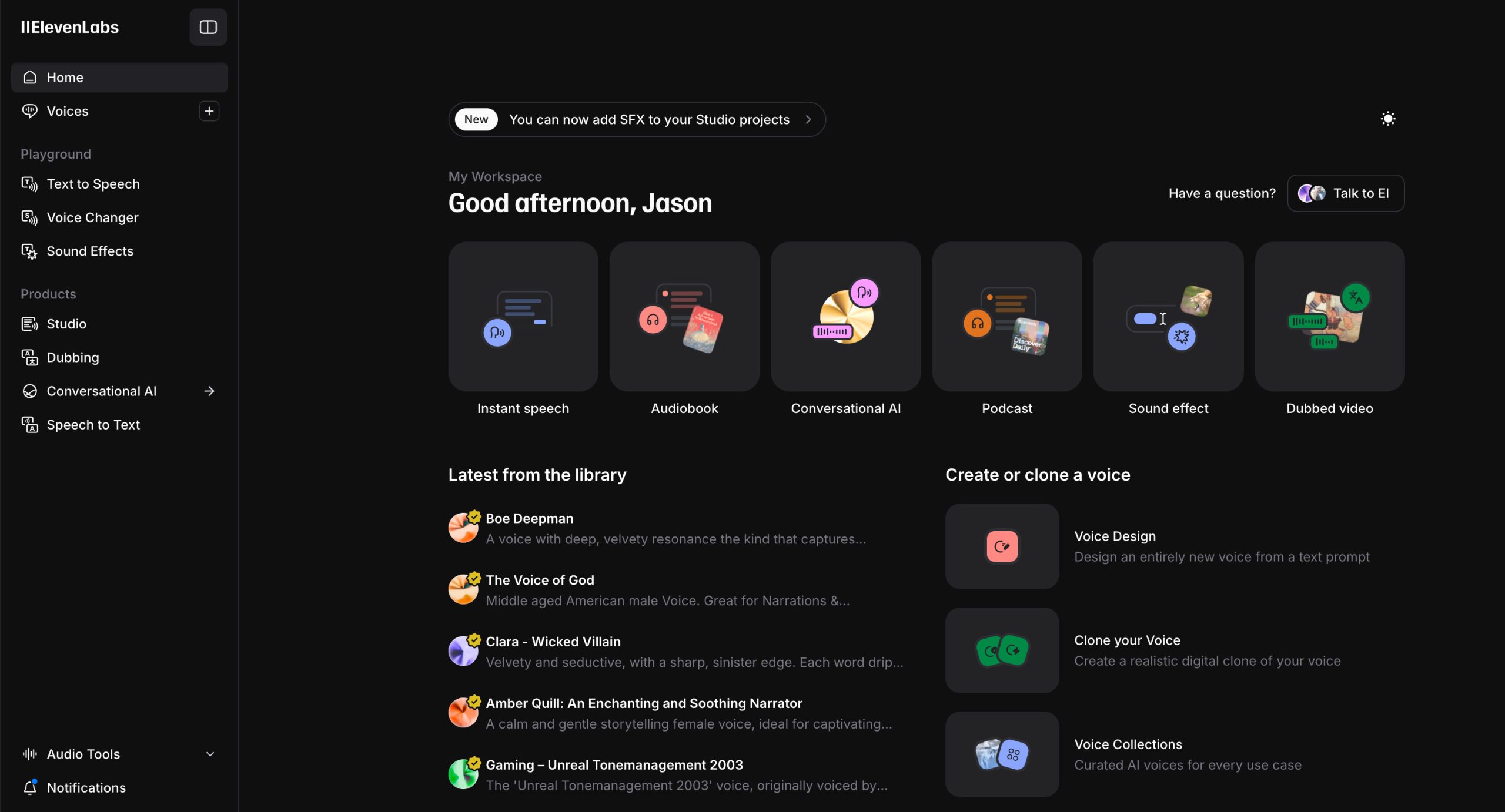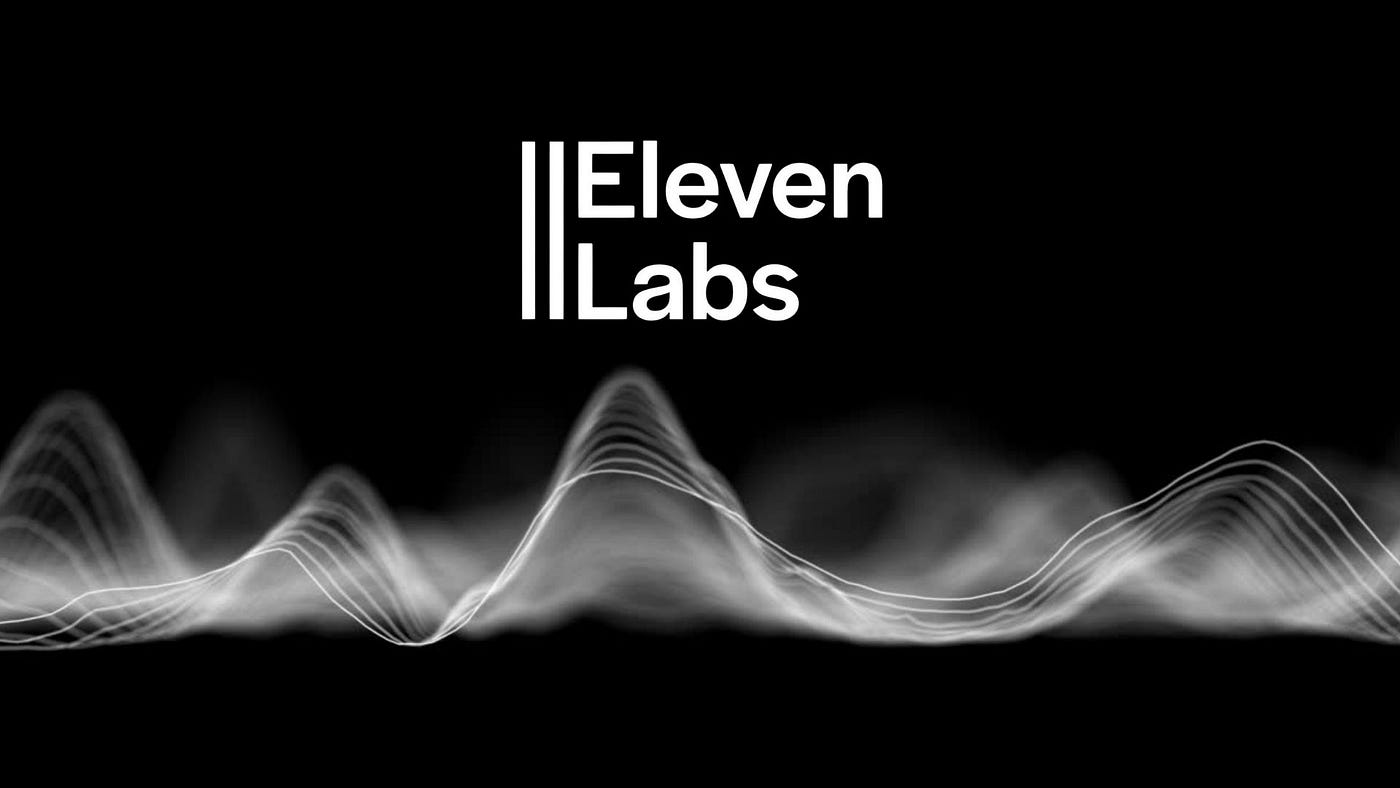His master's voice
In the two years since it was released, ElevenLabs has gained a considerable amount of attention for its advanced AI voice technology, which produces speech that closely resembles human voices and is comparable to the best offerings on the market such as Gemini and Resemble.ai. Its system captures subtle elements of speech such as tone, rhythm, and emotion, making the output sound natural, and it is this realism that has made it a preferred tool for users seeking lifelike voiceovers. The platform’s ability to replicate voices accurately has also contributed to its appeal, especially among creators and developers, while also maintaining an extremely simple to use interface.
The site offers a broad set of tools, including text-to-speech, voice cloning, dubbing, and speech-to-speech conversion. These features are integrated into a single platform which allows users to create and manipulate audio content efficiently but, unlike some alternatives, doesn't overwhelm them. ElevenLabs also supports long-form content creation, such as audiobooks, and provides access to a voice library and APIs. Recent additions like sound effect generation and voice isolation further expand its capabilities, making it suitable for a wide range of applications. While it offers a free mode to try out the services, to get the most out of it you will want to subscribe, which can become a little expensive quite quickly (but is very much worth it at the lower tiers).
For those using the Starter and Creator packages, affordability alongside ease of use have also played a role in its popularity. The interface is designed to be simple and accessible, and it's easy to see how ElevenLabs has come to be used across industries - from media and education to gaming and marketing - in order to save time and streamline production. Its rapid growth and adoption by professionals reflect its strong position in the AI voice technology market, and while I have a fairly decent audio setup at home I still find the programme useful for those times when I can't get the right audio conditions but need to record something quickly.

The ElevenLabs interface is clean and intuitive.
How does it work?
After using this for a while, the voice synthesis platform stands out for its natural-sounding output and contextual awareness. The system produces speech that closely mirrors human delivery, capturing subtle elements like tone, rhythm, and emotion, and this attention to detail results in voices that are not only clear and articulate but also convincingly lifelike. It's not perfect: occasionally there is a glitch with obscure words, but it fumbles far less than I do when recording my own voice for podcats. If there is a more valid criticism, it is perhaps that the output can sound almost too polished, but in general ElevenLabs delivers a high standard of realism in AI-generated speech.
The streamlined voice cloning feature is incredibly effective for both casual and professional use and the main reason why I transferred to the platform as I was looking for a suitable app to clone my own voice. With as little as a minute of recorded audio, users can generate a synthetic voice that closely resembles the original, and this ability is particularly useful for content creators and developers who need quick, accurate voice replication. The cloning process is straightforward, making it accessible even to those without technical expertise, and while it is not available for free it can be used for just $5 a month via the Starter plan.
Beyond voice generation, ElevenLabs provides a broad suite of tools that enhance its capabilities. As well as the text-to-speech function, these include speech-to-speech translation, voice changing, and multilingual dubbing, with support for major content platforms such as YouTube, TikTok and Spotify. As has been mentioned several times, the clean and intuitive interface makes it easy for beginners to navigate, while developers benefit from a reliable API and active community support. The platform also continues to evolve, with regular updates and new features that reflect a commitment to ongoing improvement.
For Content Creators
The dubbing and translation feature allows users to quickly translate and dub videos while preserving the original speaker’s tone, timing, and emotional expression, which is particularly valuable for reaching international audiences. In some instances, the tool can even retain the quality and flow of the original voice during translation and, importantly, is available at no cost. Another key offering is the long-form speech synthesis editor, formerly known as “Studio”, which is tailored for creating extended audio content like audiobooks. Users can import scripts, divide them into chapters and sections, assign different voices to various parts, and export the finished product as an MP3 file. The editor includes useful functions such as automatic voice assignment and pause control, helping to streamline more complex projects, and even those using the free version of the platform can create up to three projects.
Despite my criticism of the output being almost too polished, it generally outperforms competitors like Resemble.ai and Descript in expressiveness, although you may have to do some tweaking with weights with some male voices to ensure that they don't sound rushed. Its voice cloning tool is its standout feature and probably the best in the field at the moment, capable of producing near-identical replicas from just a minute of recorded speech (though be warned that a few users have suggested it struggles with diverse voice types, which is an underlying problem of bias in AI models). The clean, intuitive interface contrasts with the steeper learning curve of tools like Descript, although documentation is more limited, while ElevenLabs also offers a broad feature set, including dubbing, translation, and long-form audio creation, though it lacks some advanced customisation options and tools like video editing or AI writing found elsewhere.
Perhaps the best reason to try out ElevenLabs is the simple fact that you can do it without spending a penny. You'll be limited in terms of the material you can produce, being restricted to about 10 minutes of audio per month (which is entirely reasonable), and unable to use its voice-cloning feature which is - for me - the best reason to become a subscriber. Those subscription packages can become very steep if you require more than about an hour and a half of audio a month, but if you simply want to dabble with voice cloning and short content generation for your site or social media, the starter pack is a non-brainer, allowing you to use some of the best voice AI tools out there for the price of a coffee each month.


